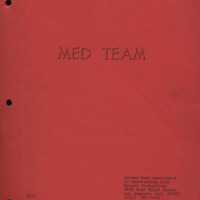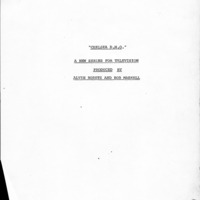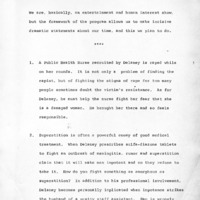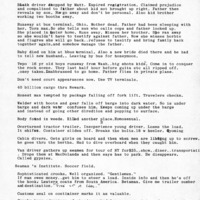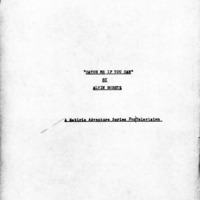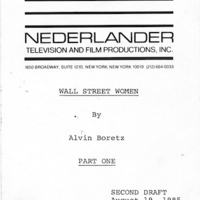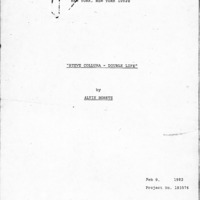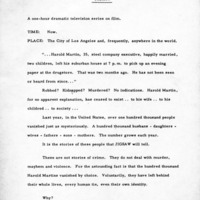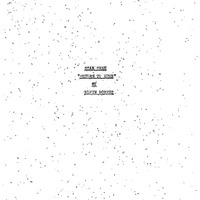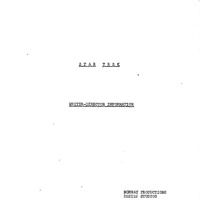To Lose and To Win
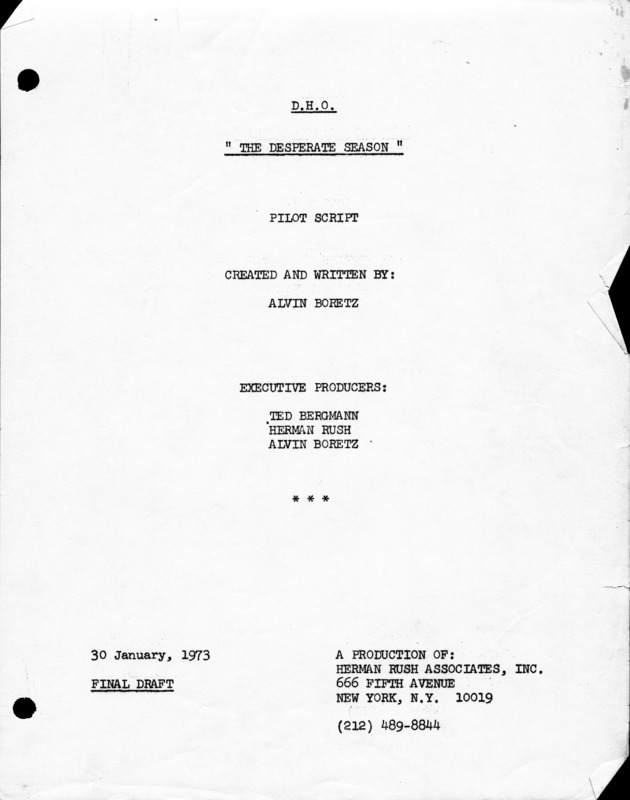
Unlike during his radio career, Boretz's career in television provided more space and opportunity for projects of his own creation to be pitched to popular networks. In his collection, there are hundreds of unproduced television scripts, ideas, and even full series that never made it to the screen.
Scripts for pilot episodes of series like Champagne Charlie and Steve Collura show promise with their twisting plots and humorous dialogue but never made it past their first scripts. For the series Jigsaw (1962), Boretz retained both his notes on the idea for a series and the script of the first episode, "Of Struggles and Flights." The anthology series was about discovering the mystery behind hundreds of disappearances, and Boretz's notes depict the various ways that the stories could be told.
Other series like Gateway, Port Command, and Chelsea D.H.O. were attached to CBS and ABC, but the networks never picked up the pilots. The first two series, Gateway and Port Command were two of Boretz's attempts at writing a series about the Port Authority of New York and the work they do for the city. He was in contact with Port Authority personnel and even gained permission to film in Port Authority areas. Similarly, Chelsea D.H.O. was a series based around the Department of Health and focused on the work done by health professionals in the 1980s. The ABC pilot was set to introduce a young Richard Gere as the star, and while the pilot test got good ratings, the network opted for a police procedural to be aired instead.
Boretz's unpublished scripts range in length and genre. For instance, after a meeting with Gene Roddenberry, the creator of Star Trek, Boretz outlined an episode called "Return to Eden" that was never produced but followed the series format sent to him by the Star Trek offices. It was rare that Boretz branched out to science fiction, but his outline demonstrates his capacity for writing the genre. On the other end of the spectrum, during the 1980s, Boretz wrote an entire four-part mini-series titled Wall Street Women that is over a hundred pages long. The series was picked up by CBS's Director of Mini-Series, Bob Markell, but when he left the company and the news of a feature film titled Wall Street (1986) was set to hit theaters the following year, the series was dropped.

